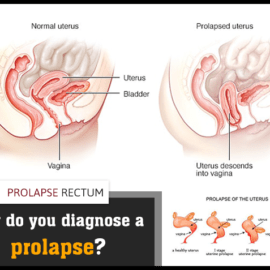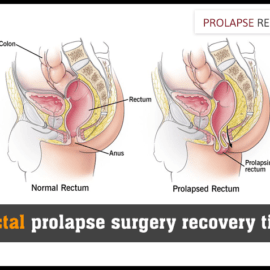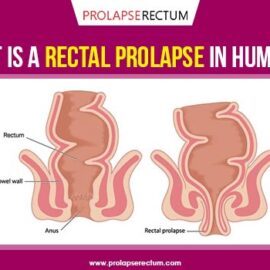
Rectal prolapse is a source of worry, anxiety, and humiliation for many people. You may be hesitant to discuss your symptoms. Alternatively, symptoms like uncontrolled flatulence and fecal incontinence may make your life a misery.
Fortunately, individuals with rectal prolapse usually have enough time to avoid surgery by following a program of exercises, diet, and medication. However, the problem worsens with time and necessitates surgery. When a rectal prolapse becomes severe enough to need surgery, Coyle Institute provides a minimally invasive procedure.
Rectal Prolapse: What Is It?
Between the large intestine and the anus lies the rectum, a part of the digestive system.
Rectal prolapse occurs when the rectum loses its attachments to internal body components. The anus telescopes, or turns inside out, and the rectum protrudes. It may show as a crimson protrusion coming out of the anus during or after bowel motions in its early stages.
Rectal prolapse may affect the whole rectum or only a small part of it. Internal prolapse occurs when the rectum collapses within the body but does not emerge from the anus.
Rectal prolapse is frightening and inconvenient, but it is seldom a reason for concern.
Rectal Prolapse: Who is at Risk?
When the rectum, the portion of the digestive system between the large intestine and the anus, protrudes from the anus, it is known as rectal prolapse. When the rectum separates from the internal pelvic tissues that keep it in place, this happens. The rectum then inverts and passes through the anal sphincter. Patients may see or feel the rectum protruding from the anus in the majority of instances, usually during or after a bowel movement. It may be upsetting, but it is not a life or health danger in its early stages.
Who Might Be Affected By This Illness?
Rectal prolapse affects about 2.5 individuals out of every 100,000. Rectal prolapse is six times as common in women over 50 as it is in males. Rectal prolapse is further increased by a weaker pelvic floor and persistent constipation.
It feels like you’re sitting on a ball when the rectum is prolapsed and refuses to retract. Anal discomfort, rectal pain, fecal incontinence, constipation, oozing mucus, and bleeding are some of the other symptoms.
What Are the Consequences of Rectal Prolapse Surgery?
The treatment and recuperation from a rectopexy include hazards, just like any major surgery.
The following are some of the risks:
- Infection
- Constipation
- Diarrhea
- Bowel blockage
- Prolapse recurrence
- Pain
- Bleeding
- Damage to organs, tissues, or nerves
- Fistula risk



